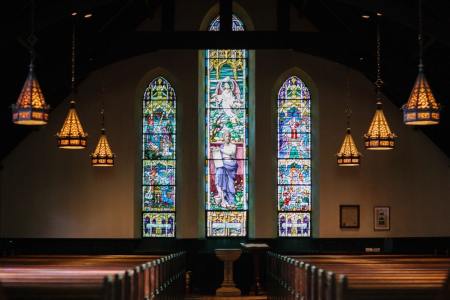Md. outlines what state deems as acceptable religious services amid coronavirus shutdown

Officials in Maryland released a guidance Wednesday detailing what the state constitutes as acceptable religious gatherings amid a statewide stay-at-home order issued by Gov. Larry Hogan.
The Office of Legal Counsel released an interpretative guidance document that explains what types of religious services will be allowed until the order is lifted.
Acceptable gatherings included “Drive-In Religious Services,” “Limited In-Person Services,” and “Minimal Operations at Religious Facilities.”
Drive-In Religious Services, or services in which attendees remain inside their vehicles, will be allowed as long as no more than 10 people are in a vehicle, passengers remain in the vehicle at all times, and they refrain from physical contact with others.
“Participants may not interact physically with clergy, staff, or participants in other vehicles. This includes, but is not limited to, collecting donations by basket or plate,” explained the guidance.
Regarding Limited In-Person Services, the guidance said it was acceptable for 10 or fewer people, to be inside a house of worship, provided there was no physical contact among participants and social distancing was respected.
“There must be at least a four hour gap between the end of one in-person service and the beginning of the next in-person service,” the guidance adds. “The Religious Facility should be cleaned between services, in accordance with CDC cleaning and disinfection guidance.”
For both types of services, collecting offerings via basket or plate were considered unacceptable given the close proximity required between people.
Finally, on the issue of Minimal Operations at Religious Facilities, it was noted that houses of worship could conduct minimal operations provided they respect rules regarding social distancing.
“In the case of religious facilities, the term Minimal Operations includes, but is not necessarily limited to, facilitating remote services,” the document explained.
State orders aimed at combating the spread of COVID-19 have varied in how they treat religious gatherings, with some opting to exempt houses of worship from the recommended restrictions.
For example, Michigan Gov. Gretchen Whitmer issued an exemption for places of religious worship from a statewide ban on gatherings of 50 people or more.
Whitmer told “Fox News Sunday” anchor John Roberts in March that she believed the government did not have the right to order houses of worship to close over the pandemic.
“Well, you know, the separation of church and state and the Republican legislature asked me to clarify that,” Whitmer said.
“That's an area that we don't have the ability to directly enforce and control. We are encouraging people, though, do not congregate.”





















